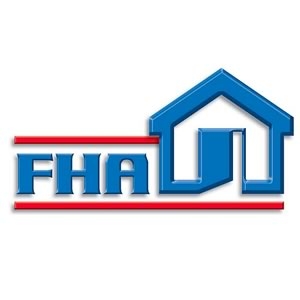Mortgage Demystified: A Comprehensive Examination of Finance Programs Tailored to Fit Your Monetary Situation and Objectives
Browsing the landscape of home car loans frequently presents a daunting obstacle, intensified by a myriad of programs designed to satisfy diverse economic needs. Recognizing the differences between fixed-rate and adjustable-rate mortgages, as well as government-backed alternatives like FHA and VA financings, is critical for making informed choices.
Understanding Mortgage Basics
Although lots of individuals aspire to homeownership, understanding the essentials of mortgage is crucial to making educated monetary choices. A home loan, additionally referred to as a mortgage, is a financial product that permits individuals to obtain money to buy property. The customer is needed to settle the car loan quantity, together with passion, over a collection duration, generally varying from 15 to three decades.
Key parts of mortgage consist of the principal, which is the amount borrowed, and the rate of interest price, which establishes the cost of borrowing. Lenders examine various elements, such as credit scores score, revenue, and debt-to-income ratio, to establish eligibility and funding terms. In addition, consumers need to be aware of the value of deposits, which can influence car loan approval and affect monthly payments.
Understanding lending amortization is also vital; this describes the progressive decrease of the finance balance in time with routine settlements. By comprehending these basic principles, prospective homeowners can navigate the home mortgage landscape better, eventually causing far better financial results and a more effective home-buying experience.
Kinds of Home Loan
When exploring the landscape of home financing, recognizing the numerous types of mortgage is crucial for making an enlightened selection. Mortgage can mostly be classified into fixed-rate and adjustable-rate mortgages (ARMs) Fixed-rate mortgages offer a constant interest price and monthly settlement over the funding's term, providing security, typically for 15 to thirty years. This predictability attract property owners that like budgeting assurance.
On The Other Hand, ARMs have rates of interest that vary based upon market problems, generally beginning less than fixed-rate choices. However, these prices can readjust regularly, possibly enhancing month-to-month repayments over time. Borrowers who prepare for re-financing or relocating prior to considerable price modifications may discover ARMs advantageous.
Furthermore, government-backed finances, such as FHA, VA, and USDA loans, deal with particular demographics and use different benefits like lower down payments and flexible credit rating needs. Traditional car loans, not insured by the government, often call for greater credit score scores yet can give affordable prices for solvent customers - FHA home loans. Understanding these loan types allows prospective home owners to choose the home loan that lines up ideal with their financial situation and long-lasting objectives
Secret Qualification Needs
Browsing the qualification needs for a home loan is a critical action in the home-buying process. Understanding these needs can significantly streamline your application and enhance your chances of approval.
The key factors influencing qualification consist of credit history, earnings security, debt-to-income (DTI) ratio, employment history, and down settlement quantity. A lot of loan providers require a minimum credit report of 620 for traditional finances, while government-backed car loans may have a lot more Recommended Site lenient requirements. A stable earnings, demonstrated via constant employment or self-employment documents, is crucial for loan providers to analyze your capability to settle the car loan.
The DTI ratio, which compares your regular monthly debt settlements to your gross monthly income, normally ought to not surpass 43%, though some lending institutions may enable greater proportions in particular scenarios. Furthermore, the dimension of your down settlement can influence eligibility; while a bigger deposit may improve your possibilities, specific programs provide options for marginal down settlements.
Lastly, lenders will assess your total monetary account, consisting of readily available properties and responsibilities, to ensure you are financially with the ability of maintaining homeownership. Familiarizing yourself with these crucial eligibility needs will encourage you in the home loan application journey.

Rate Of Interest Clarified
Comprehending the complexities of rates of interest is fundamental to making informed decisions in the mortgage process. Rates of interest represent the price of obtaining money and are shared as a percentage of the lending quantity. They can significantly impact your month-to-month home mortgage settlements and the total expense of your home finance.
Rate of interest can be classified right into taken care of and adjustable rates. Repaired rates remain consistent throughout the financing term, offering predictability in monthly payments. On the other hand, flexible rates vary based upon market conditions, which can cause lower initial settlements yet may enhance gradually.
A number of factors influence rates of interest, including the consumer's credit rating, car loan term, and dominating economic problems. Lenders analyze these aspects to figure out the threat related to providing to a certain customer. Normally, read the article a greater credit rating rating can bring about lower rate of interest, while longer finance terms might lead to greater prices.
In addition, more comprehensive financial indicators, such as inflation and monetary policy, play an important duty fit rates of interest. Understanding these elements allows customers to better navigate the lending landscape and choose alternatives that align with their monetary goals.
Selecting the Right Financing Program
Selecting the suitable financing program is crucial for borrowers intending to enhance their financing options. With different financing kinds offered, consisting of fixed-rate, adjustable-rate, FHA, and VA loans, recognizing the nuances of each can considerably browse around this site affect lasting economic wellness.
Customers ought to initially examine their monetary scenario, including credit report ratings, revenue stability, and debt-to-income ratios (FHA home loans). A fixed-rate home mortgage supplies predictability with regular monthly payments, ideal for those intending to remain in their homes long-lasting. On the various other hand, adjustable-rate mortgages may provide lower first rates, interesting buyers who expect relocating within a couple of years
Additionally, government-backed finances such as FHA and VA options can be valuable for new buyers or experts, as they usually need lower deposits and have more tolerant credit scores requirements.

Final Thought
In conclusion, navigating the complexities of mortgage calls for a comprehensive understanding of different home loan programs and their distinct attributes. By reviewing individual financial situations and objectives, possible consumers can make informed decisions pertaining to one of the most suitable lending options. Engaging with a home loan consultant can better promote this procedure, making sure placement between individual situations and offered loan programs. Ultimately, informed options in home financing can cause enhanced economic security and long-term satisfaction.
Fixed-rate mortgages supply a regular rate of interest price and monthly repayment over the loan's term, offering security, frequently for 15 to 30 years.Additionally, government-backed loans, such as FHA, VA, and USDA loans, provide to certain demographics and offer numerous advantages like lower down repayments and versatile credit scores demands. Most loan providers need a minimal credit scores rating of 620 for standard car loans, while government-backed car loans might have a lot more lenient criteria. Fixed prices stay continuous throughout the funding term, providing predictability in month-to-month repayments. Normally, a higher credit rating rating can lead to reduced rate of interest prices, while longer loan terms might result in greater prices.